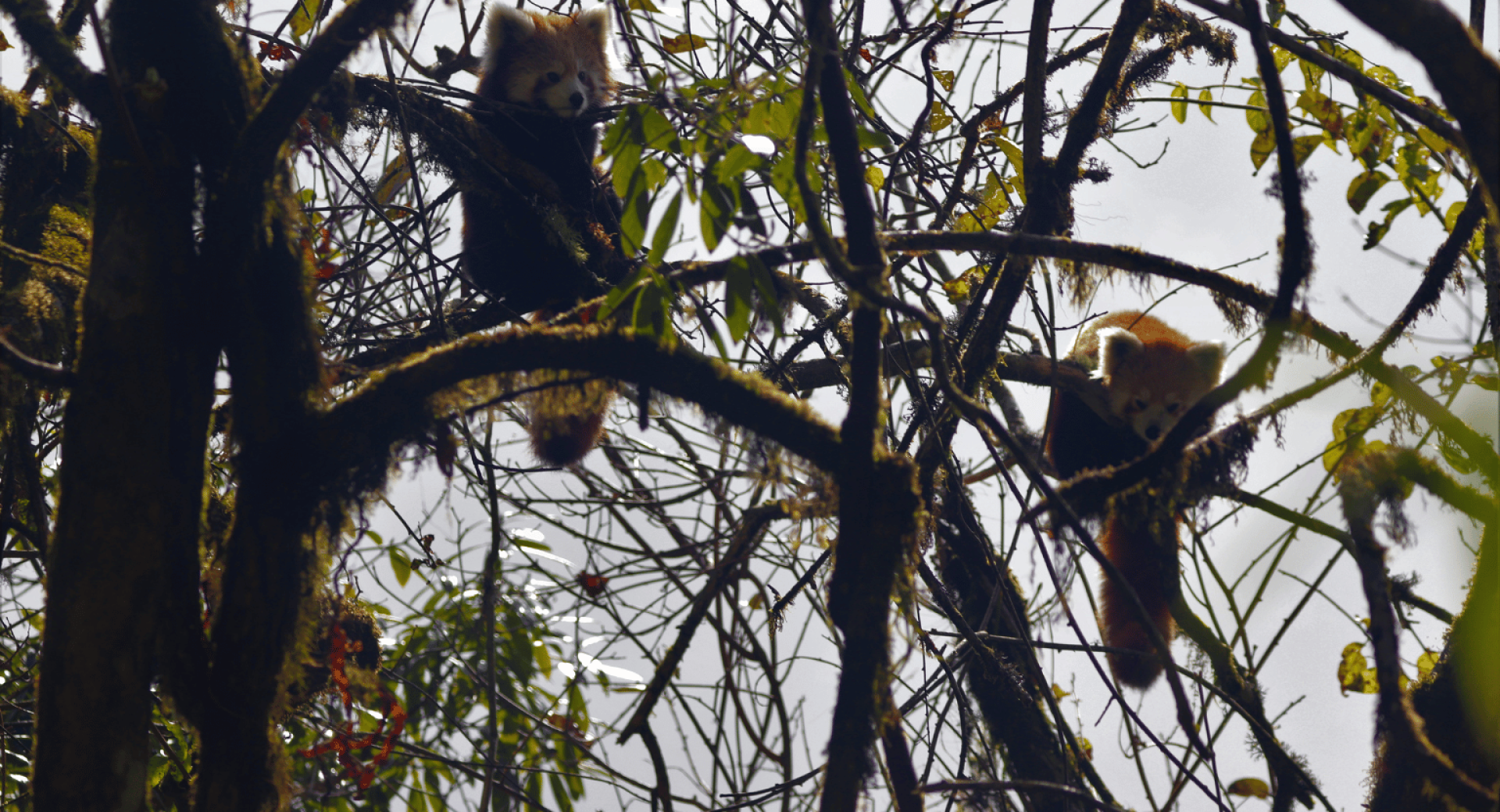
Support from monthly donors is helping us strengthen community-based red panda conservation in Nepal with the distribution of over 60,000 high-value wintergreen plants!
To protect red pandas and their habitat, we must also protect the people who live alongside them. Our sustainable livelihood initiatives do just that, providing opportunities for local people in red panda country to live in harmony with their ecosystem.
We do so by providing alternative modes of income that are sustainable for both people and the planet. As part of our sustainable livelihoods program in 2023, we distributed 60,331 wintergreen plants to 26 local families in Sidin, Panchthar district, Nepal. These plants were first distributed in June 2023, and farm visit monitoring conducted in December 2023 shows promising results for the continued development of this program!
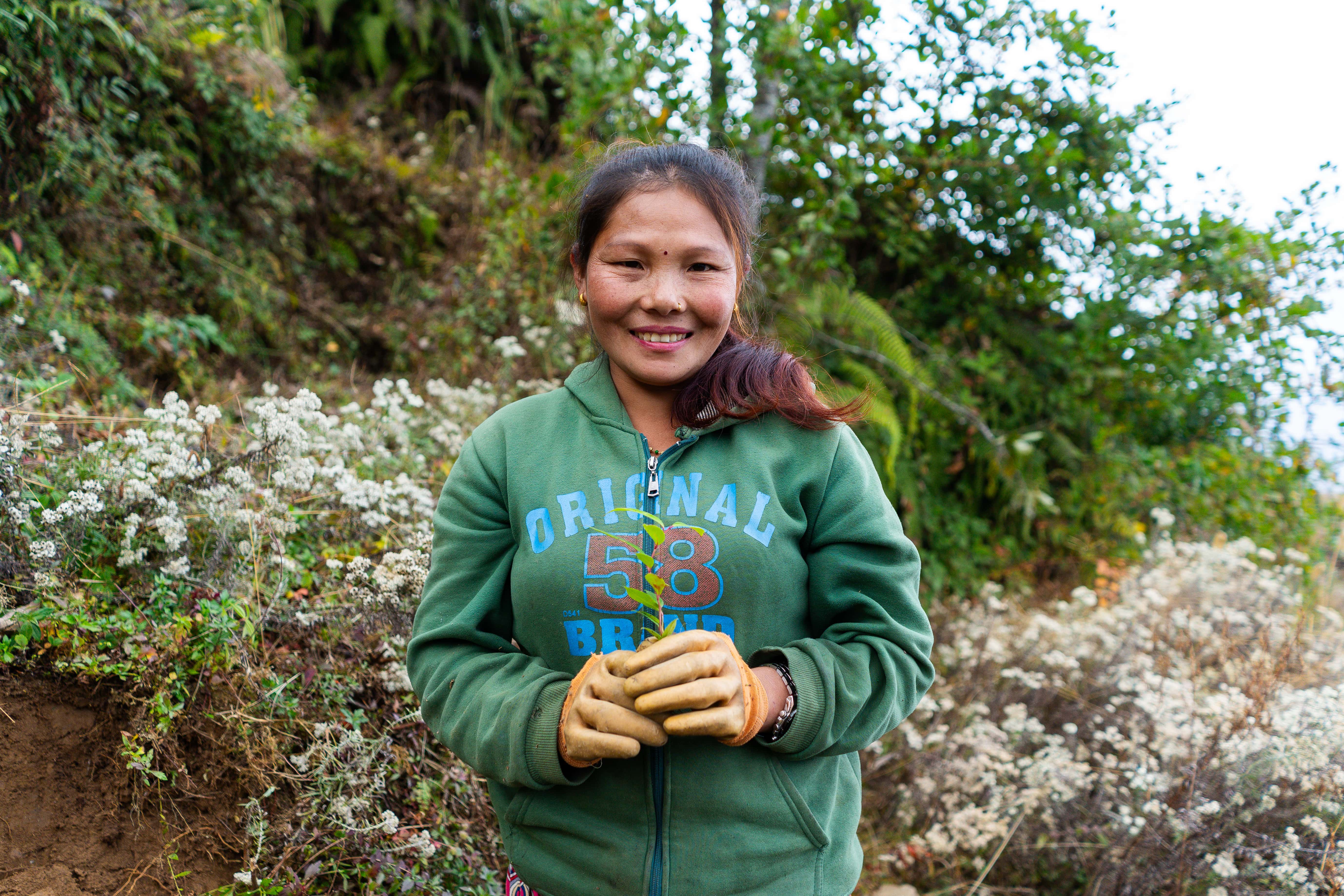
Local recipient of wintergreen plants in Sidin, Panchthar district, Nepal.
About Wintergreens
Wintergreen plants, or Gaultheria fragrantissima, are a native shrub found in the forests of Nepal that thrive in the high altitudes of the Himalayan mountains. With these plants not being widely dispersed throughout the world, they are in high demand for their medicinal and culinary properties.
Wintergreen oil can be used in a variety of ways, from medicinal salves to toothpaste flavoring. The oil made from these plants contains methyl salicylate, a powerful pain reliever. This active ingredient is closely related to aspirin, which also aids in anti-inflammation. In certain studies, wintergreen oil was shown to relieve lower back pain, headaches, and even Lyme disease!
Besides the medicinal purposes of the oil, the raw plant is often used for a wide variety of culinary purposes. The leaves can be used to make teas, while the red berries can be eaten as a good source of antioxidants. With all of these perks of the wintergreen plant and the oil created from it, the harvesting of the plant is important to the Nepalese people, many of whom solely rely on subsistence farming for their income.
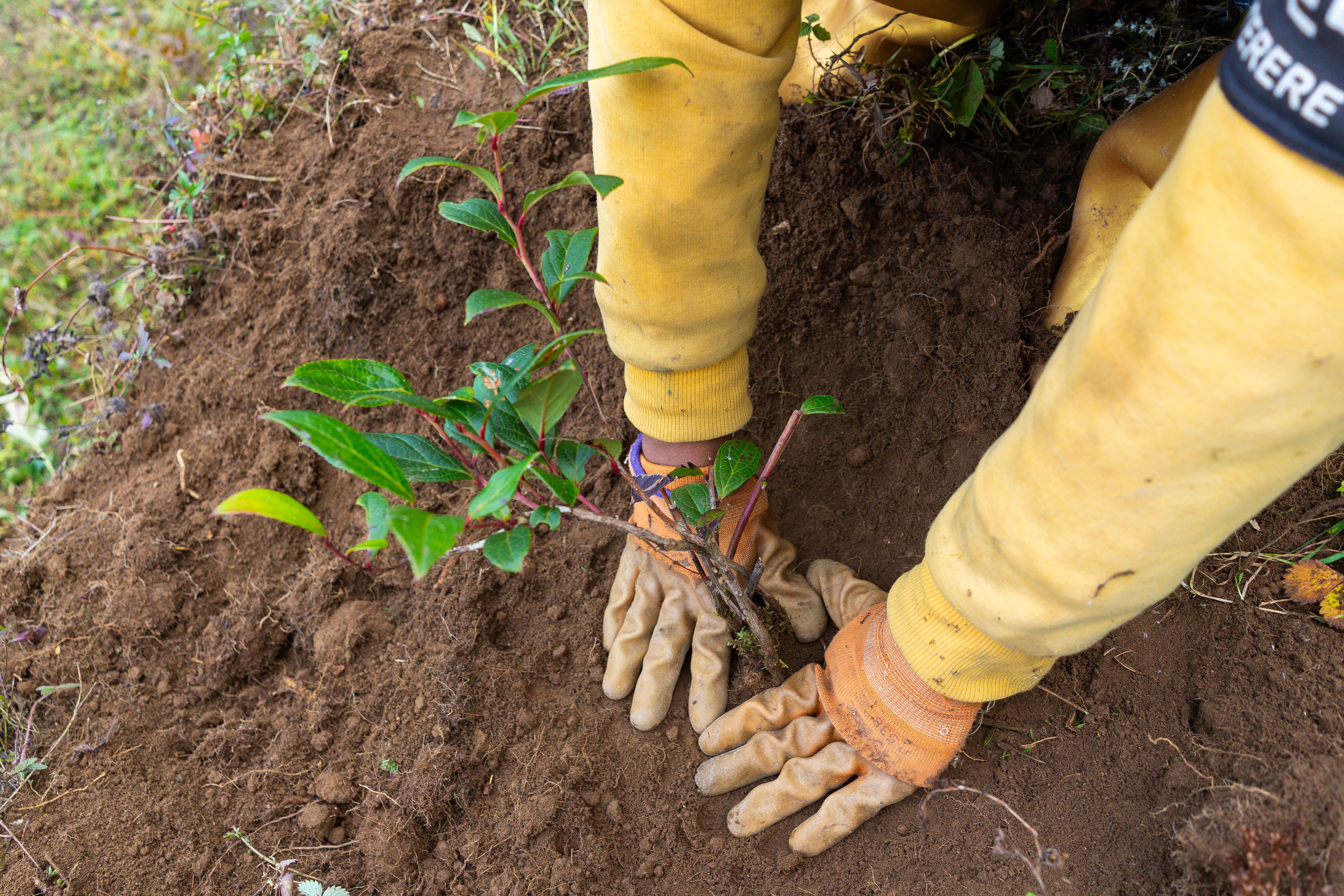
Planting a wintergreen on land to support sustainable livelihoods.
The Impact of Wintergreen on People and Pandas
Wintergreen plants have the potential to be a great source of income for the people of Sidin Panchthar. By cultivating the leaves of these plants, farmers can sell them to the local factory that produces wintergreen oil or can process and sell the plants themselves.
In the past, the plant has been harvested unsustainably from the forest, degrading habitat for red pandas and other local wildlife. The limited supply of wild wintergreen plants leaves the factories to operate only a few months out of the year.
By providing plants to local farmers in Sidin, we are able to create a reliable and sustainable source of wintergreens that can be cultivated and harvested in 2–3 years and sold to the local factory for oil production, improving incomes for local people.
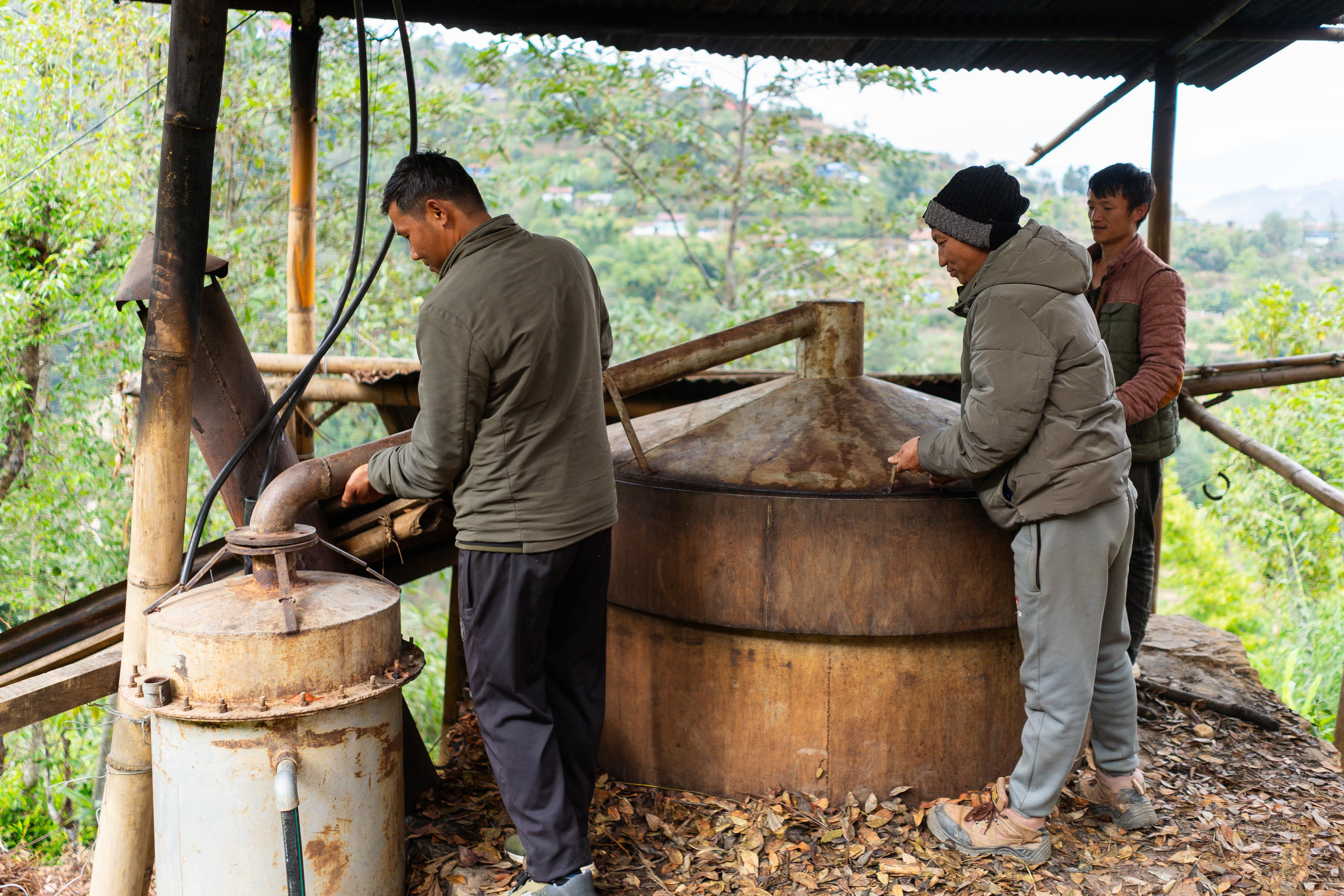
Local factory in Panchthar district where wintergreen oil is produced.
In our farm visits, we were surprised to find that farmers have been cultivating pure wintergreen, and also intercropped varieties of wintergreen that are crossed with other plants, such as cardamom. Additionally, wintergreen requires low maintenance from the farmers, which assures that they can focus on their other daily work to meet their livelihood needs!
Through continued maintenance and proper training on how best to ensure the vitality of these plants, we aim to help local families cultivate a consistent supply of wintergreens. This helps eliminate the threat of unsustainable harvesting of the plant, while also providing a reliable source of wintergreen leaves to the factory in the village.
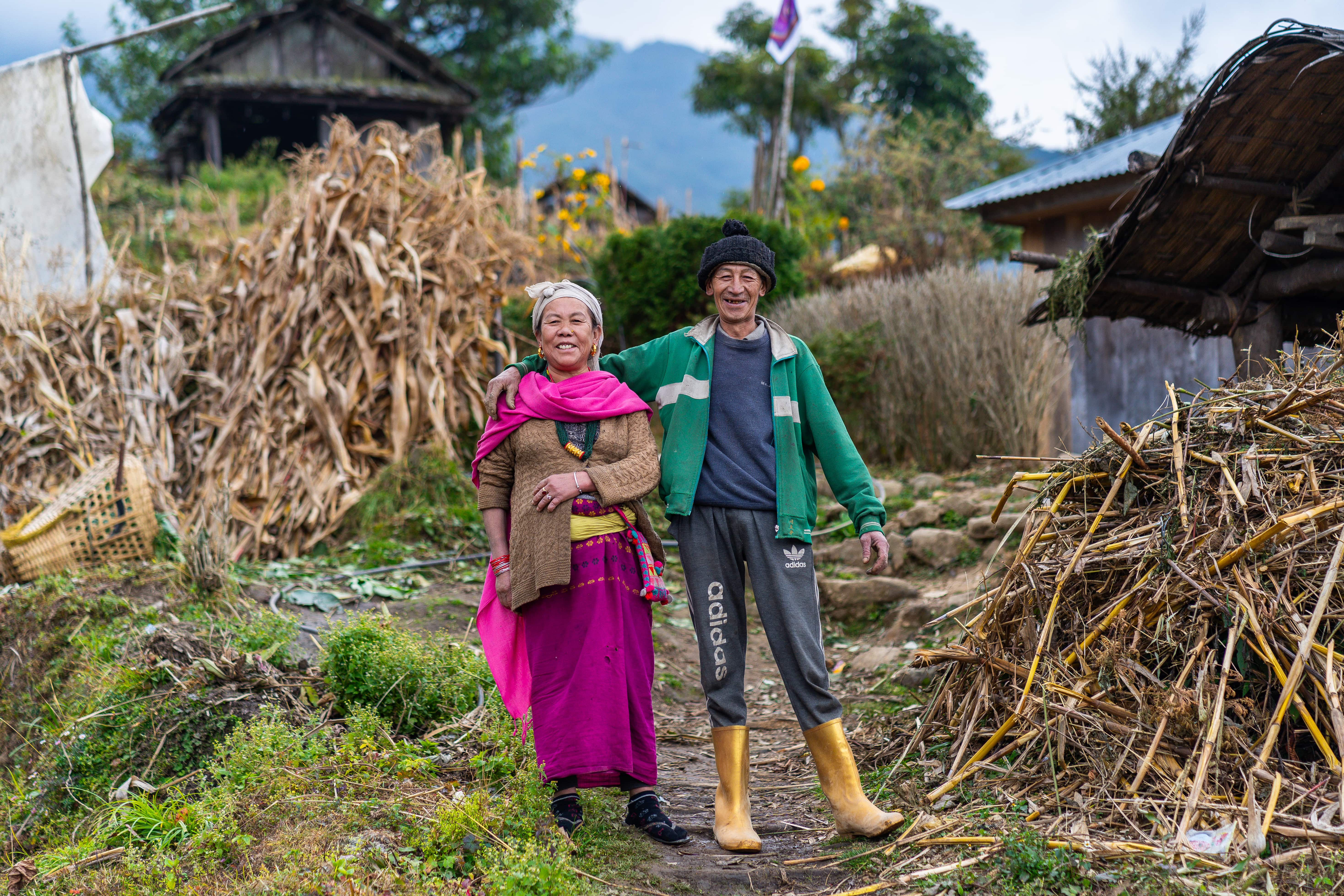 Local farmers and wintergreen plant recipients.
Local farmers and wintergreen plant recipients.
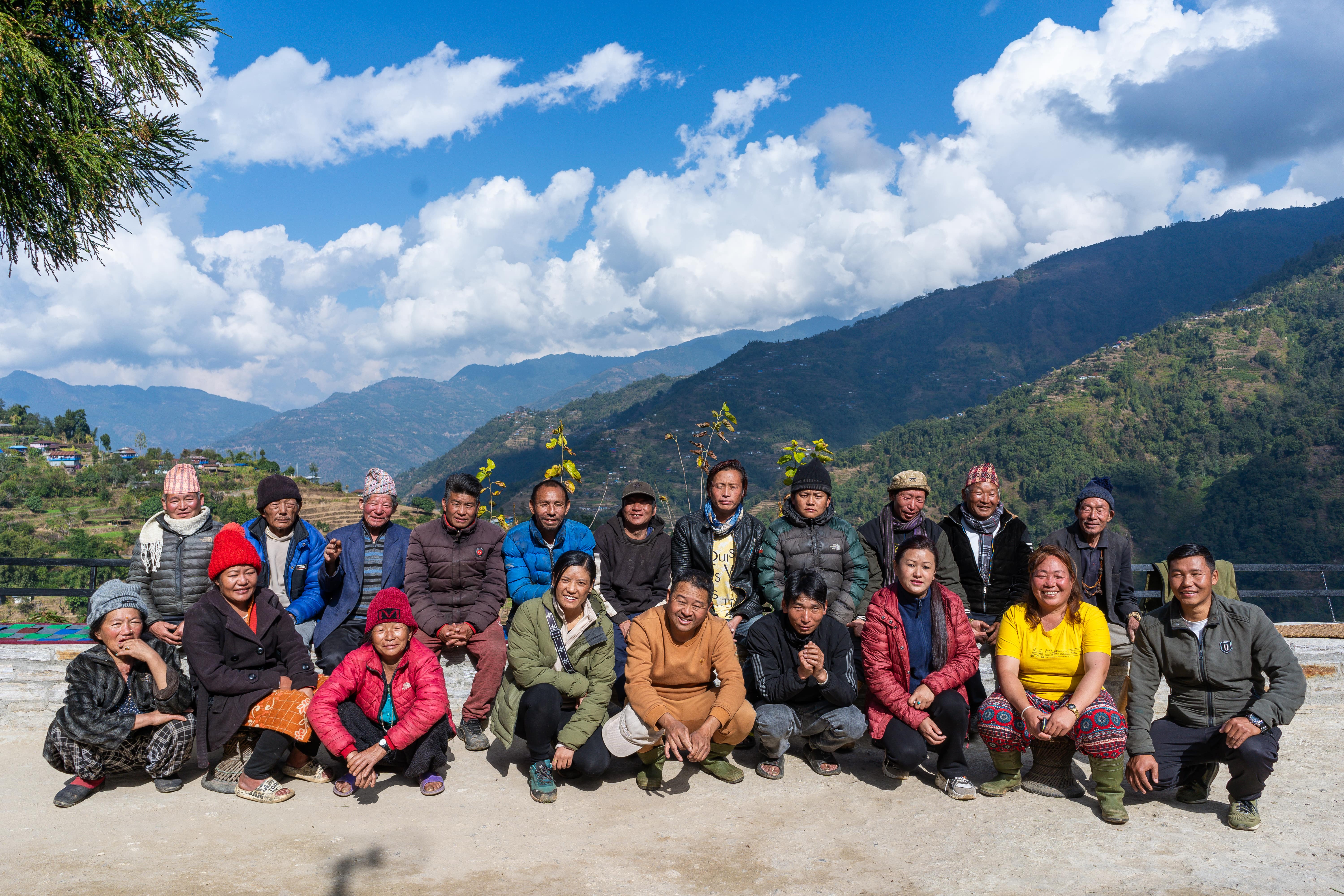 Wintergreen recipients and other local project stakeholders, including Red Panda Network (RPN) staff.
Wintergreen recipients and other local project stakeholders, including Red Panda Network (RPN) staff.
You can support this initiative alongside our other alternative income programs by becoming an RPN monthly donor. Our monthly donors, called Panda Guardians, directly improve the lives of the local people living in red panda country through their support. This initiative, like the rest of our livelihood improvement programs, has given families the opportunity for sustainable revenue, while also protecting the forests that red pandas live in!
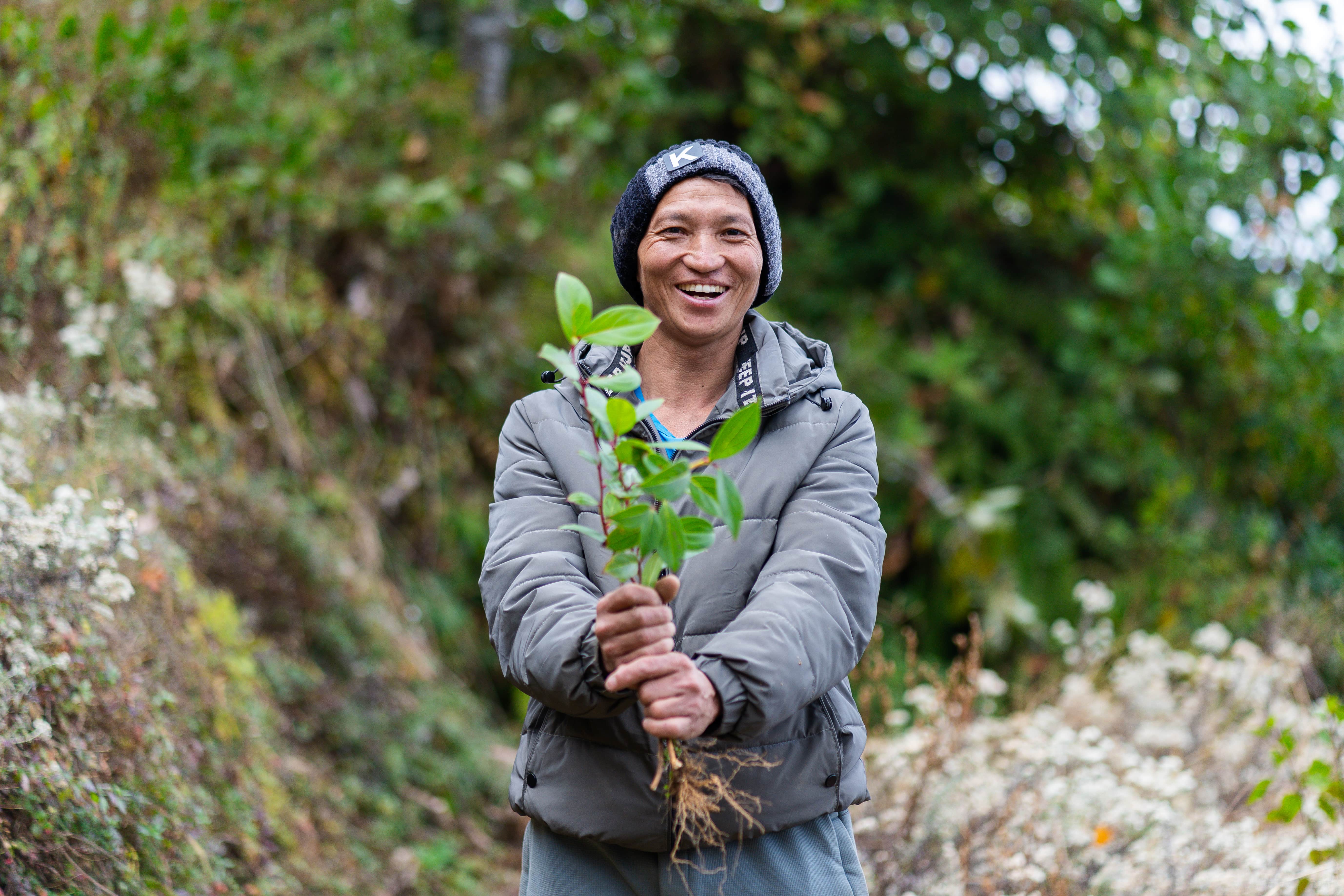
Thank you for empowering the people who protect red pandas!
Christina Barba
Writing and Communications Volunteer
Red Panda Network
References
